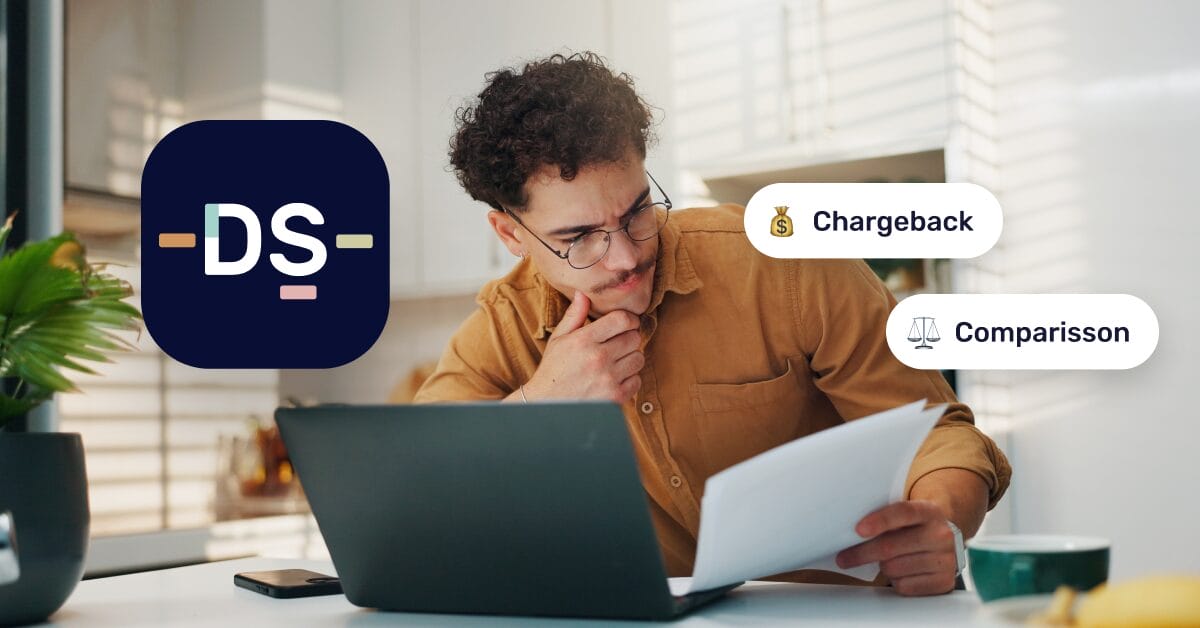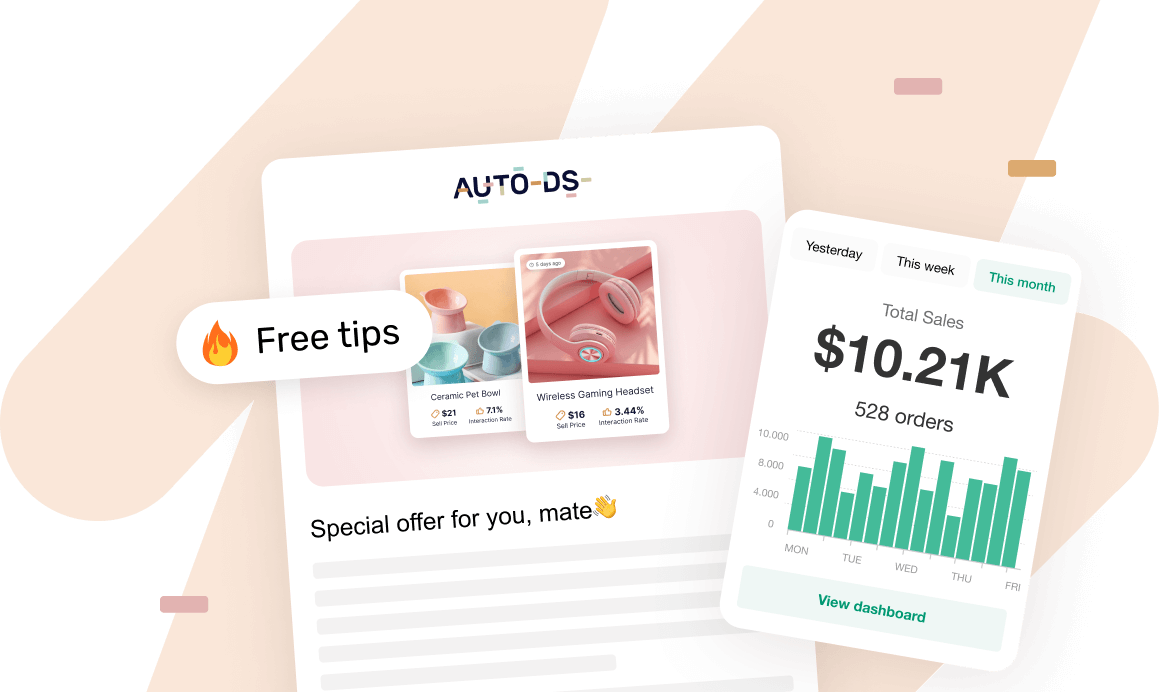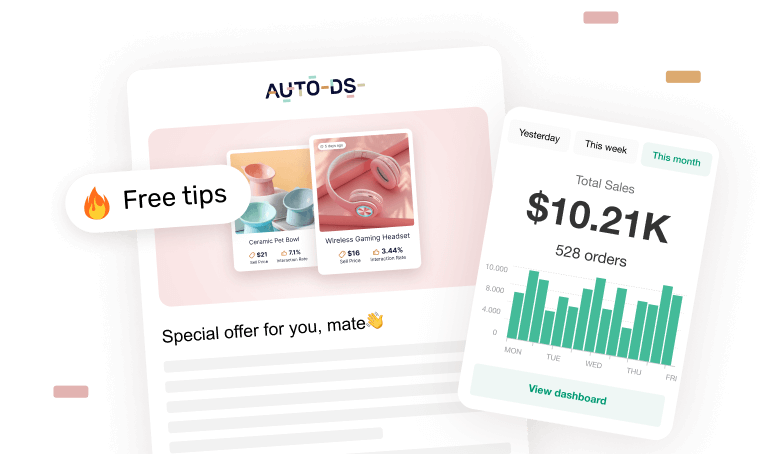If you’ve been dropshipping for at least five minutes, you’ve probably heard the word chargeback. If not, welcome to the not-so-fun side of e-commerce. A chargeback happens when a customer disputes a transaction with their bank. Basically, they ask for a refund instead of dealing with you directly. As a result, you lose the sale and the product, while putting your payment accounts at risk.
The cherry on top? You can’t control whether customers request a chargeback. But here’s the good news: what you can control is how you handle it and, mostly, how you prevent it. Having a clear and supportive chargeback process makes this easier and protects your accounts.
In this article, we’ll compare how AutoDS, Spocket, and CJDropshipping help you manage this. Specifically, AutoDS offers automated returns, tracking number updates, and a centralized orders dashboard to help you prevent chargebacks and resolve disputes faster, while Spocket and CJDropshipping rely more on manual, supplier-driven processes.
A chargeback is a forced refund. It happens when a customer disputes a purchase with their bank, and the payment is reversed, leaving the seller to cover both the product and the extra fees.
AutoDS prevents chargebacks with automated fulfillment and returns, automatic tracking numbers, and vetted suppliers.
Spocket and CJDropshipping rely on manual management. Their refund and return processes depend on supplier approval, which can slow down dispute resolution and increase chargeback risk.
What Is a Chargeback in Dropshipping?
In e-commerce, a chargeback happens when a customer skips you, the seller, and goes directly to their bank or credit card company to ask for a refund. Instead of reaching out to you to change or return the product, they issue a chargeback. The result? The bank pulls the money straight out of your account.
I know what you’re thinking: isn’t this easier for you, since you’re not the one handling the dispute directly? Why not let the bank handle customer support for you?
Well, it doesn’t really work that way. For dropshippers, a chargeback means losing money, paying extra fees, and putting your accounts at risk. Plus, it’s a double loss: you lose the payment, and you’ve likely already paid the supplier.
Now the question is: why do customers file for chargebacks? A couple of reasons:
- Shipping took longer than the customer expected.
📦 Supplier’s Tip: Keep a short list of backup suppliers for your best-selling products. If one runs out of stock or ships late, you can switch instantly and avoid the delays that often lead to chargebacks.
- The product arrives damaged or not as described.
- Fraud. For example, when someone uses a stolen credit card, the real cardholder disputes the purchase.
Either way, here’s the biggest issue: most of the time, chargebacks are issued by customers who are not happy. And, for sellers, it’s hard to deal with angry customers and control what they do or don’t do.
But it’s not all bad news: there are ways to handle and prevent chargebacks. And that’s where dropshipping platforms come in.
AutoDS Chargeback Policy & Process
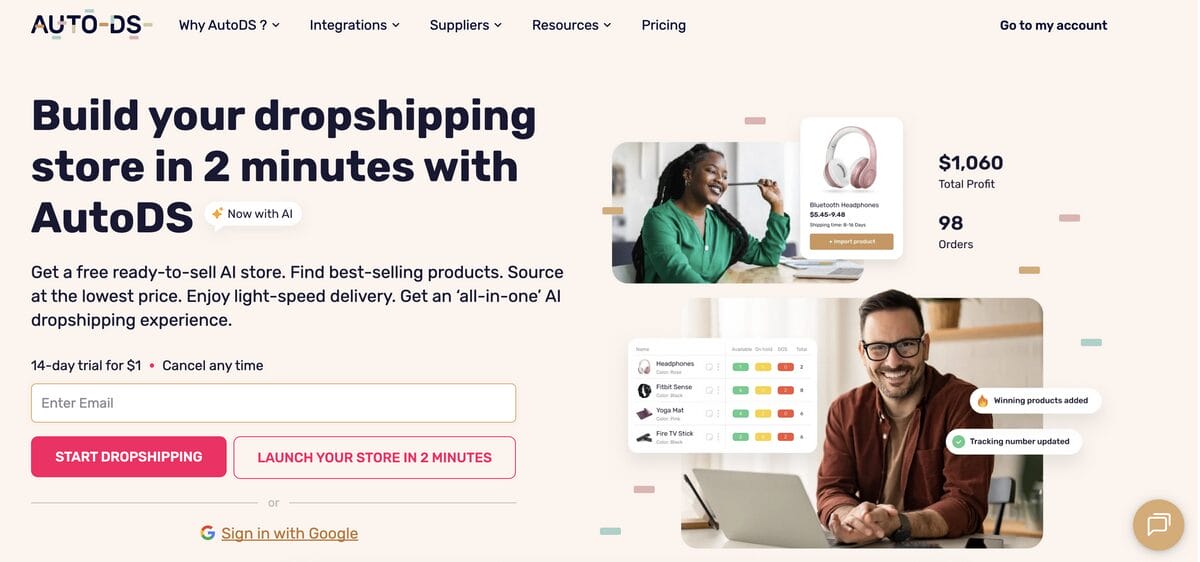
AutoDS takes a hands-on approach to helping dropshippers prevent chargebacks. While it doesn’t actually have a specific process for this, the platform is built with features that help minimize disputes and handle customer requests quickly.
Fulfilled by AutoDS is one of its strongest tools for managing returns, refunds, and issues. With this feature, orders are automatically processed and shipped by AutoDS. Plus, when a customer requests a return, AutoDS generates a return label on your behalf and handles the logistics directly with the supplier. Once the item is received and confirmed, AutoDS issues the refund automatically.
There’s also a dashboard where you can see the status of all your orders to keep track of everything—from current status to essential information. From there, you can also manage returns in just one click.
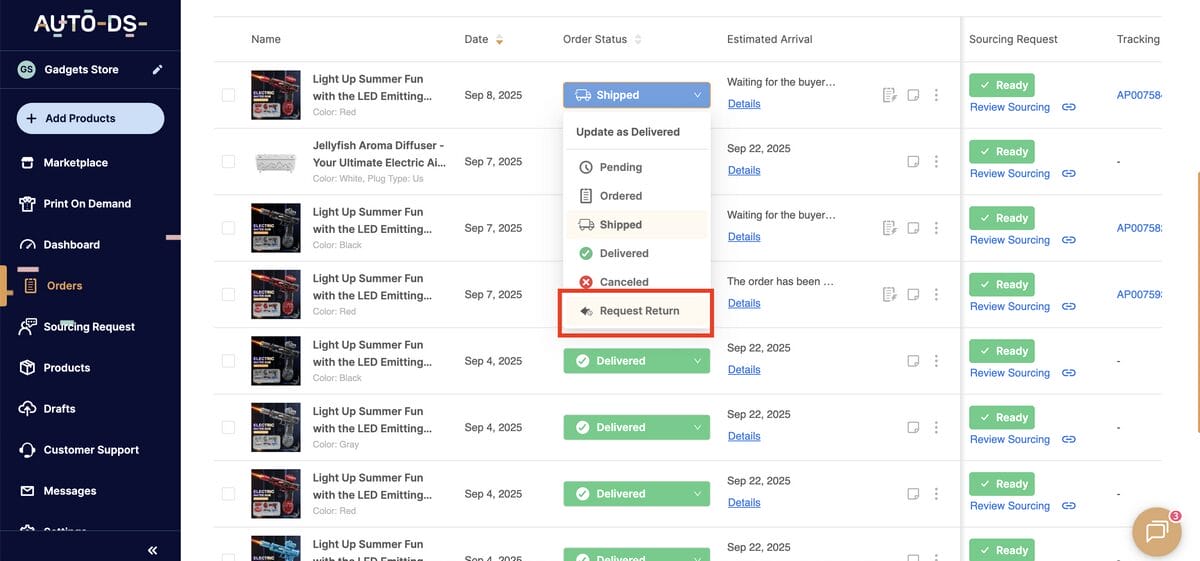
And there’s more. AutoDS also offers automated order tracking to give customers real-time updates. This way, they know exactly where the package is and when it’s arriving.
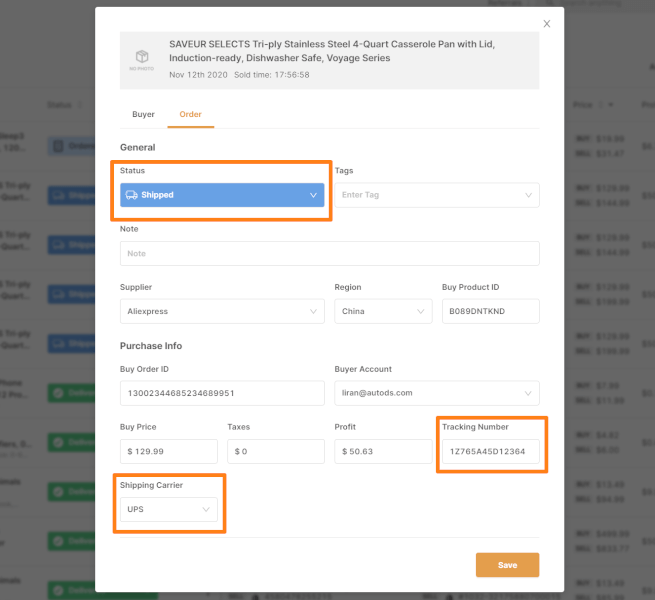
Finally, AutoDS connects you with vetted, reliable suppliers that lower the risk of defective or fake products that could lead to disputes.
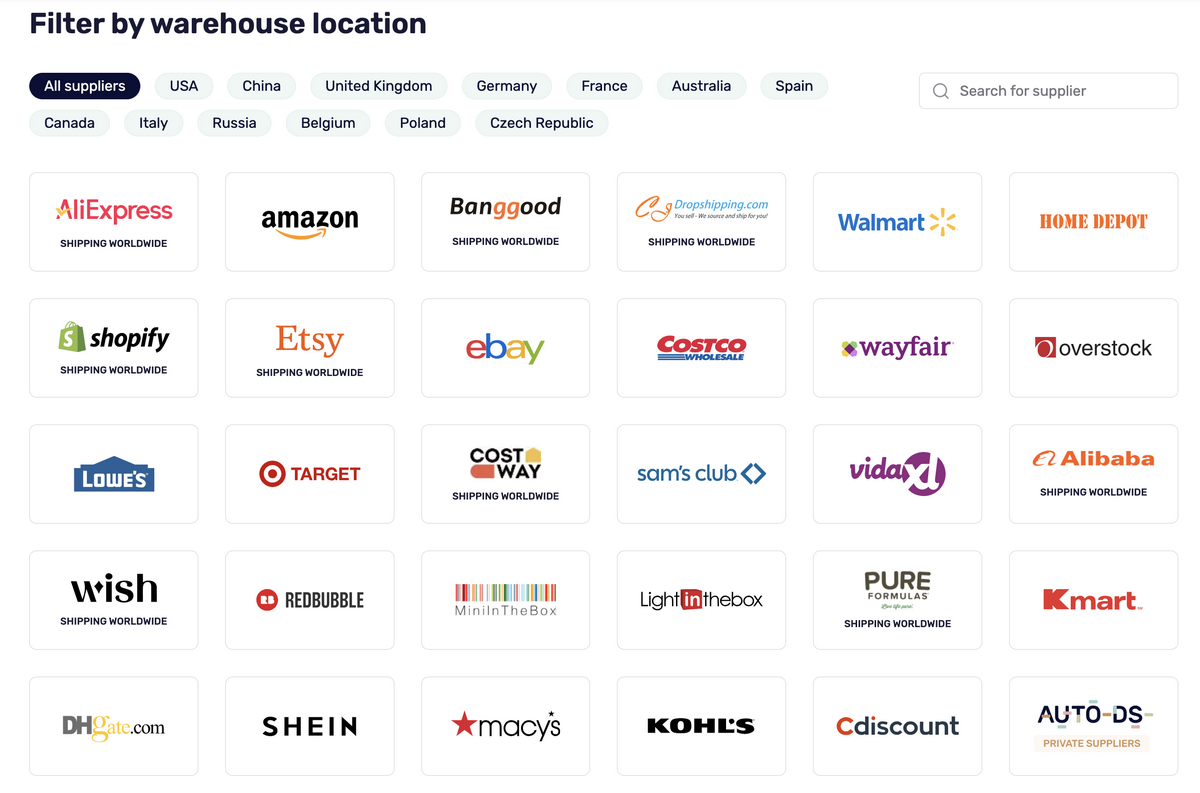
For customers, this whole system is fast, clear, and professional. Their orders are fulfilled immediately, and if they request a return, they’re not waiting for days for you to coordinate with suppliers or issue a manual refund. This leads to fewer chances that they’ll skip straight to a chargeback or file for “item not received” claims.
For you, the dropshipper, it’s a hassle-free process. No chasing suppliers, no messy back-and-forth, no stressing over potential disputes. Just an automated workflow that does the heavy lifting.
Cut down the number of disputes before they even happen with automation at every step of the way. Try AutoDS now! 👉 Start $1 trial
CJDropshipping Chargeback Policy & Process
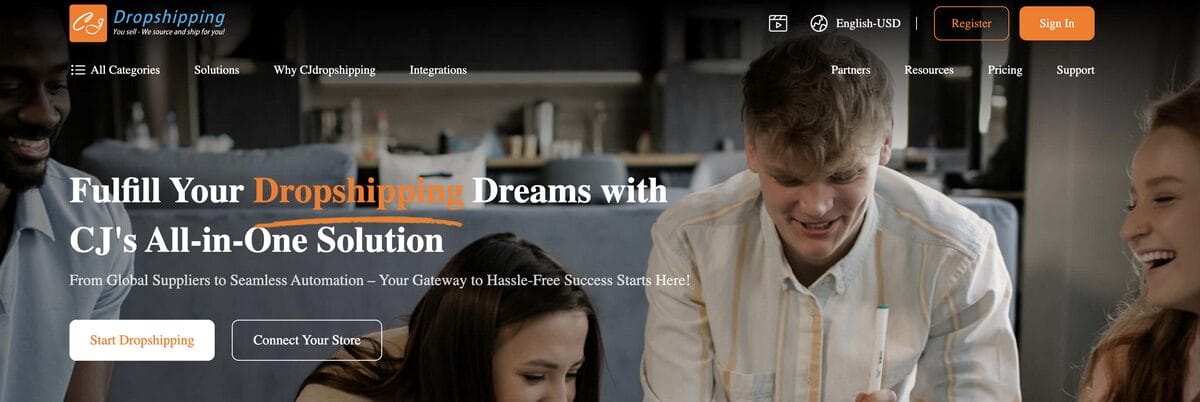
CJDropshipping does not handle chargebacks directly, but it does help sellers handle refunds, resends, and returns internally through its Dispute System.
All issues must be opened on the CJDropshipping platform, or the account risks being blocked. To resolve a request, sellers are expected to provide evidence, such as photos or videos of damaged items, tracking information, or proof of customer complaints.
Then, CJDropshipping offers refunds, resends, or returns for specific cases, including:
- Delayed orders or non-delivery (with proof). If tracking shows “delivered”, refunds are not granted unless sellers provide a non-delivery certification from the local post office.
- Damaged products.
- Incorrect/missing items.
Support is handled case-by-case and relies heavily on documentation. And mostly, returns and refunds are manual rather than automated, making the process slower and more complicated to manage. This can lead to potential disputes more easily on the customer side if things are not handled quickly.
In short, CJDropshipping’s process is detailed but supplier-driven and manual. While they offer a path for refunds and replacements, sellers must manage most of the documentation and back-and-forth, potentially leading to more chargebacks than automated platforms like AutoDS.
Spocket Chargeback Policy & Process
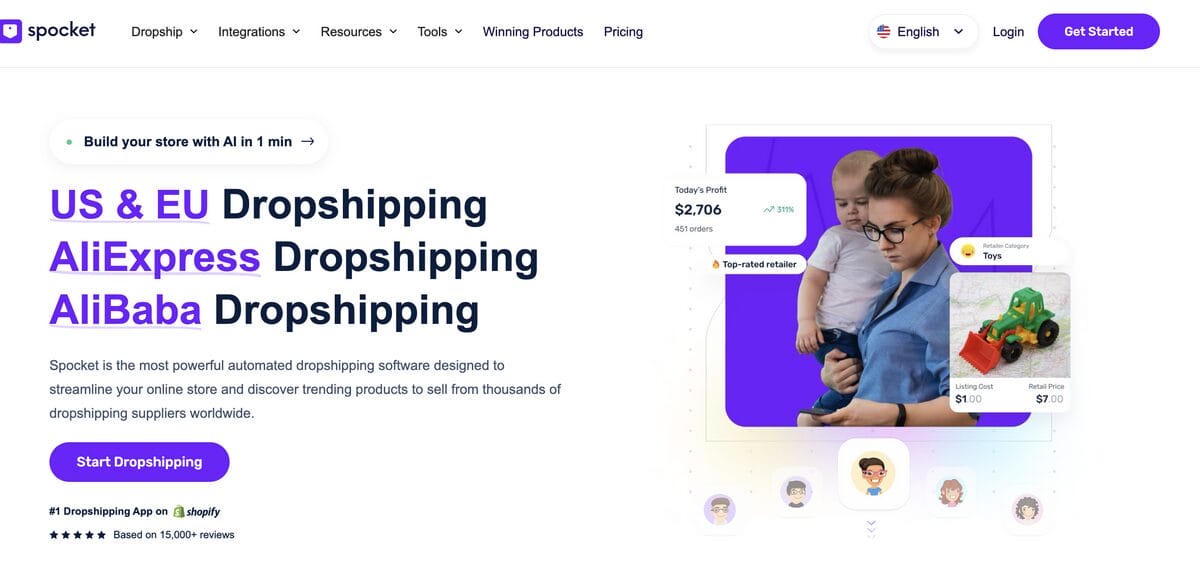
Just like AutoDS and CJDropshipping, Spocket doesn’t handle chargebacks directly. As a dropshipping platform, its role is more about handling returns and refunds than direct dispute resolution.
When a refund or return request happens, Spocket requires sellers to provide clear evidence, such as order confirmation, delivery tracking, or proof of communication with the buyer. Then, it works with the supplier to review the case. That said, there are certain policies to keep in mind:
- Returns are only accepted within the 15-day dispute window.
- Only damaged, defective, or not-as-described products are eligible for returns and refunds.
- Spocket doesn’t cover returns caused by buyer fraud or customer dissatisfaction outside the previous conditions.
- If tracking shows the package as delivered, Spocket considers the order complete, so handling chargebacks for ‘missing item’ claims becomes difficult unless you can provide additional proof of non-delivery.
Also, it’s important to note that, just like CJDropshipping and unlike AutoDS, Spocket doesn’t handle returns and refunds automatically. It’s a manual process where the seller has to open a dispute with Spocket, Spocket has to notify the supplier, the supplier has to approve it, and so on. This can complicate and delay returns, potentially leading to chargebacks.
In any case, resolution depends heavily on supplier cooperation, which can make outcomes less predictable compared to platforms with more centralized systems like AutoDS.
Which Dropshipping Tool Is Better for Chargebacks?
When it comes to handling and preventing chargebacks, AutoDS has the edge against Spocket and CJDropshipping. Its automation features, like automated returns and real-time tracking updates, help reduce the situations that usually lead to disputes.
By cutting down on “item not received” claims, damaged product complaints, and refund delays, AutoDS lowers your risk before chargebacks even happen.
That said, platforms like Spocket and CJDropshipping may still appeal to certain sellers. If you run a small catalog, prefer to manage supplier relationships manually, or don’t mind handling returns hands-on, their dispute systems can work fine. They’re more supplier-driven than automated, which might suit someone running a small business rather than a full-scale dropshipping store.
🆕 Beginner’s Tip: Always keep detailed records of every order, like tracking numbers, supplier invoices, and customer messages. This documentation can make all the difference when disputing a chargeback and proving your case to the platform and payment provider.
Bottom line? If your goal is to scale your store without manual inputs, AutoDS is the clear winner. The automation and centralized dashboard all add up to fewer disputes, faster resolutions, and more energy left to grow your business. Combine it with chargeback prevention software, and your e-commerce business is safe from fraud and disputes.
Frequently Asked Questions
What should you check before choosing your platform’s chargeback process?
Before choosing your dropshipping platform, check for their return and refund policies, an active customer support team, automation tools for prevention, and supplier reliability.
Why is the chargeback process important in dropshipping?
A transparent and clear chargeback process is important in dropshipping because unresolved chargebacks lead to financial loss, damaged reputation, and even store suspension.
What should every chargeback feature/process include?
Every chargeback feature or process should include clear dispute steps, preventive tools like tracking and automation, dedicated support, and supplier accountability.
Can automation reduce chargebacks?
Yes, automation can reduce chargebacks. Tools like AutoDS’s order tracking, automated returns, and stock monitoring help prevent disputes.
Final Verdict: AutoDS Takes The Lead Preventing Chargebacks
Chargebacks aren’t exactly the fun part of running a dropshipping business. But they’re something every seller faces sooner or later. Preventing and handling them efficiently isn’t just about saving money. It’s about protecting your store’s reputation, keeping customers happy, and staying in control when things go wrong.
When comparing how dropshipping platforms can help you manage this, the main takeaway is this: dropshipping platforms can’t actually step into the process with banks. What they can do is create a seamless workflow where chargebacks just don’t happen.
AutoDS takes the lead against Spocket and CJDropshipping with automated fulfillment, tracking updates, and returns. On the other hand, Spocket and CJDropshipping rely heavily on manual, supplier-driven processes, which can work for smaller stores but make it hard to scale in the long term.
Want to dive deeper? Here are a few reads and resources you might find helpful:






